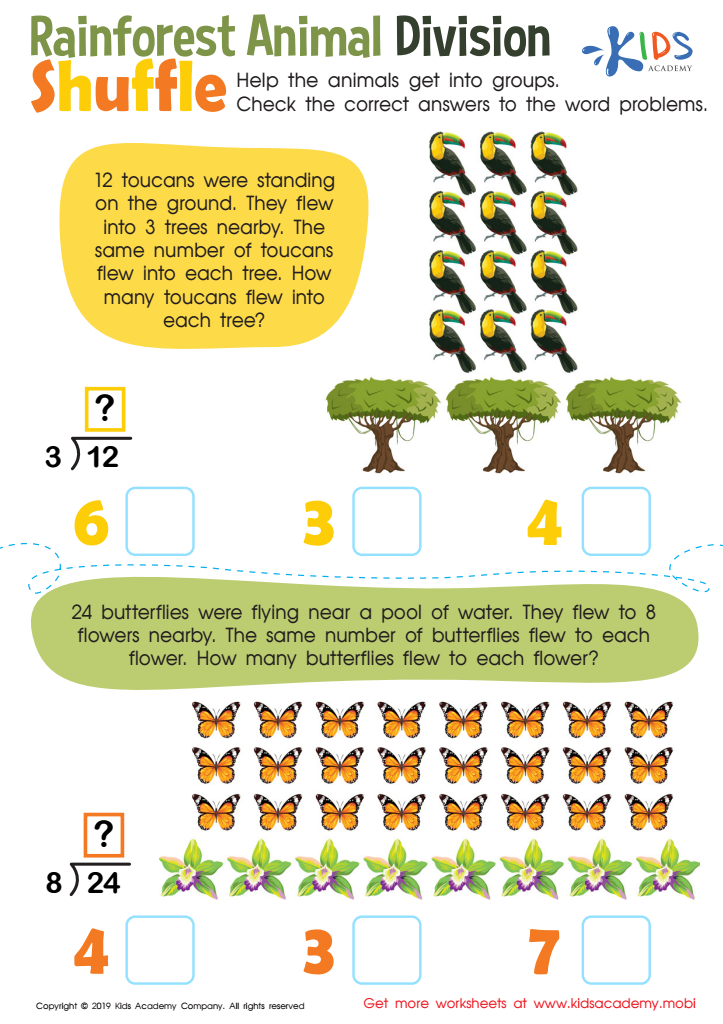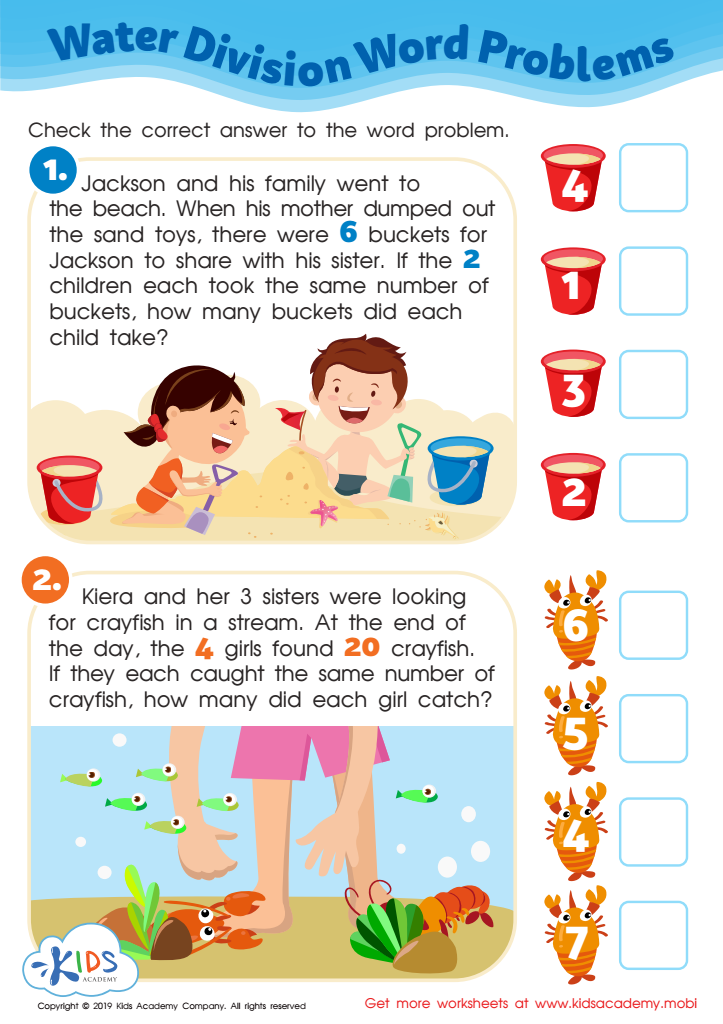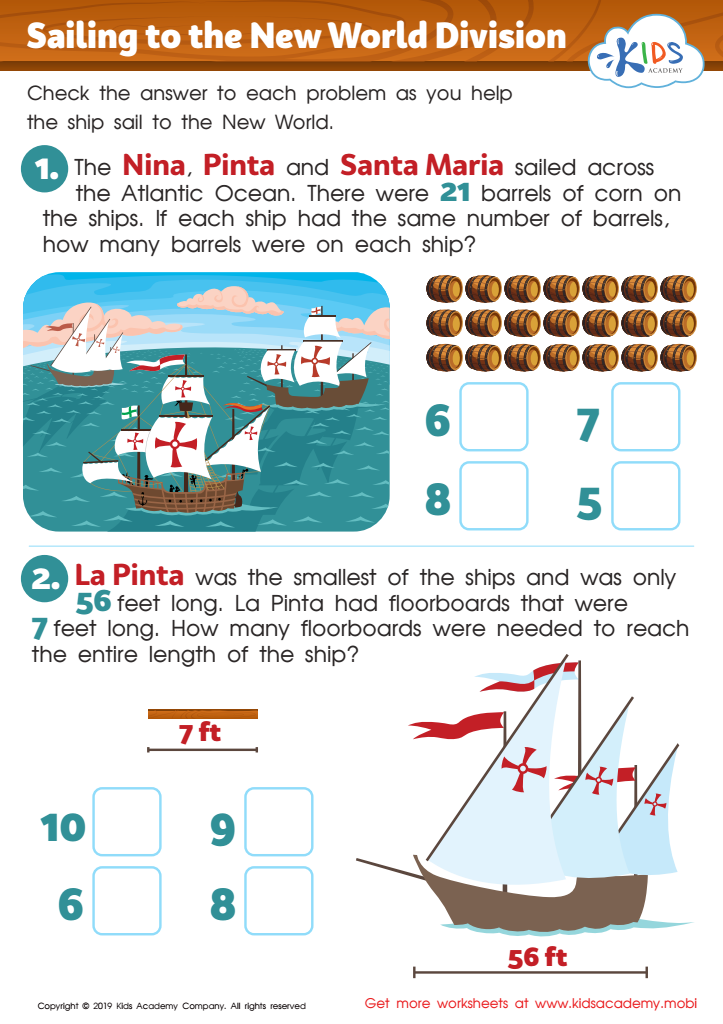Division practice Normal Word Problems Worksheets for 5-Year-Olds
4 filtered results
-
From - To
Enhance your child's understanding of division with our engaging Normal Word Problems Worksheets designed specifically for 5-year-olds! These worksheets introduce fundamental division concepts through fun, relatable scenarios that spark curiosity and foster critical thinking. Each problem encourages young learners to explore dividing objects into groups, promoting foundational math skills in a playful, interactive way. Perfect for home or classroom use, these printable activities help children develop their problem-solving abilities while building confidence in math. Make learning division enjoyable and approachable with our thoughtfully crafted worksheets tailored for early learners. Get started with an exciting journey into the world of numbers today!


Rainforest Animal Division Worksheet


Enrichment -2 Step Word Problems Worksheet


Water Division Word Problems Worksheet


Sailing to the New World Division Worksheet
Parents and teachers should care about division practice through normal word problems for 5-year-olds because it lays a foundation for essential mathematical skills and critical thinking. At this age, children are developing their cognitive abilities, and engaging with word problems helps them learn how to interpret language and use it in a mathematical context.
Division, though often considered a complex concept, can be introduced at a basic level through relatable scenarios. For instance, sharing 10 apples among 5 friends encourages children to think about equal sharing, promoting collaboration and problem-solving. This not only nurtures their understanding of division but also reinforces important social skills.
Moreover, practicing word problems fosters creativity and imagination as children visualize scenarios to arrive at answers. This combination of mathematics and language helps strengthen literacy skills while cultivating logical reasoning. Additionally, early exposure to math in a fun and engaging way reduces anxiety around the subject later in life.
By integrating division practice into everyday situations, parents and teachers can make math relatable and accessible, ultimately promoting a positive attitude towards learning and a solid foundation for future academic success. Encouraging children to explore and enjoy math at this stage can lead to greater confidence and competence as they advance in their education.
 Assign to My Students
Assign to My Students
















